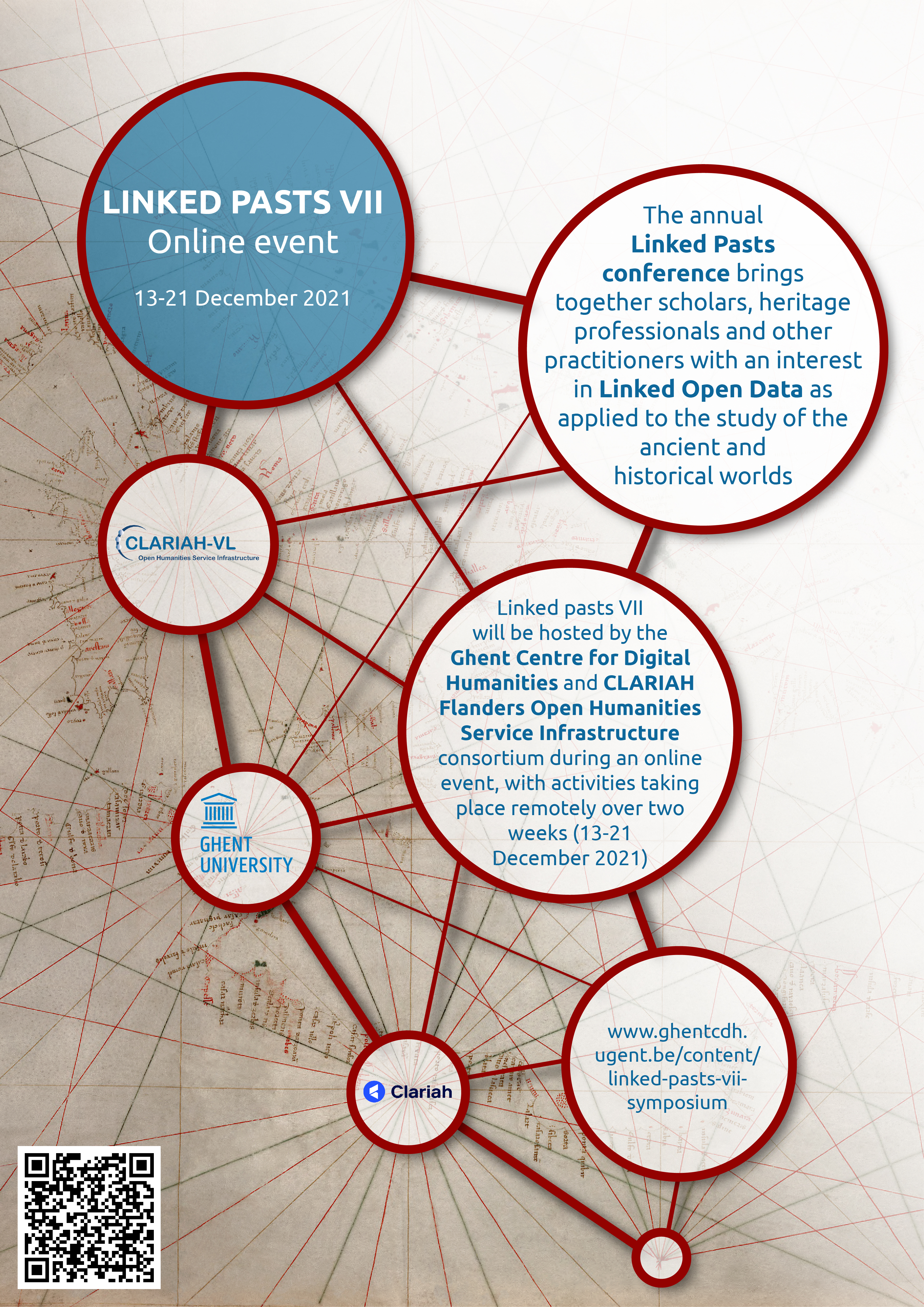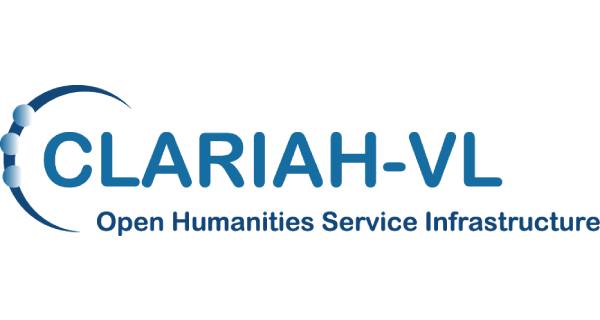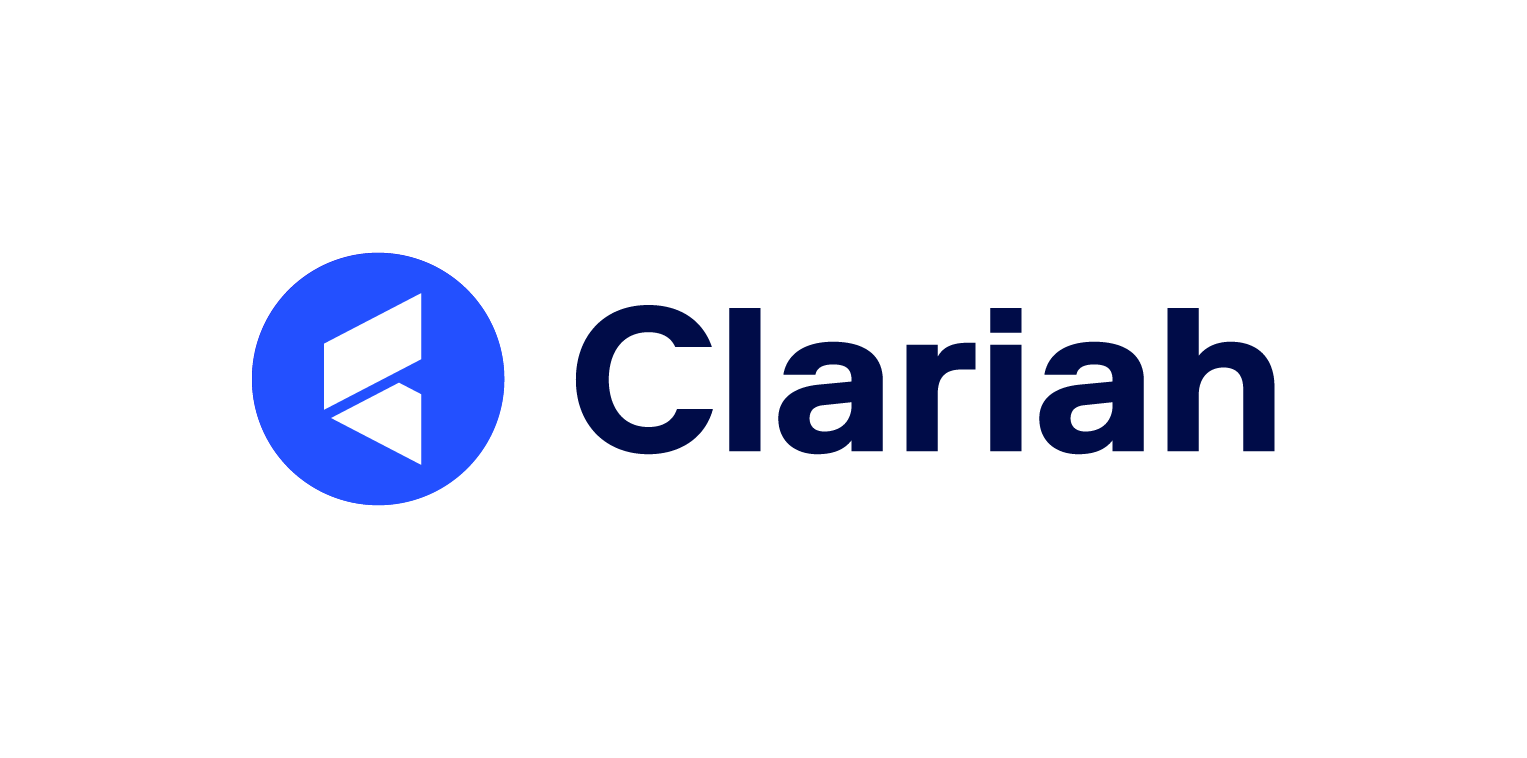The annual Linked Pasts conference, which has previously been held at KCL, Madrid, Stanford, Mainz, Bordeaux and virtually at London brings together scholars, heritage professionals and other practitioners with an interest in Linked Open Data as applied to the study of the ancient and historical worlds. Panels and working groups at Linked Pasts are more goal-oriented than a conventional academic conference, and activities and agendas are often proposed, developed and revised by all participants at the event itself. The Linked Pasts Symposium is a formal partner of the Pelagios Network.
The seventh installment of Linked Pasts in December 2021 will be hosted by the Ghent Centre for Digital Humanities and CLARIAH Flanders Open Humanities Service Infrastructure consortium (an interdisciplinary team from Universities of Ghent, Antwerp, Leuven and Brussels).
CHANGE IN FORMAT: Due to corona related measures, Linked Pasts 7 will move from a hybrid event to an online event with activities taking place remotely (online) over two weeks (December 13-21). Other than welcome, keynotes and wrap-up at the beginning and end of the conference, most activities during the weeks will be asynchronous, with work or discussions taking place in whatever medium is most appropriate to the activity and community in question.
Registration
Participation in the conference is free, but advance registration is required. Please register here.
Programme
The times below are given in Central European Time (CET). You can keep track of the schedule and activities via a publicly viewable Google Calendar.
Monday December 13
14.00 - 15.00 LP Kickoff
The Things We Think We Link: The Cascading Violence of Colonial Archives (chairs: Valeria Vitale & Christophe Verbruggen)
How can we make deliberate use of Linked Open Data for restorative justice for marginalized people in historical collections? Digitization has increasingly made accessible a vast trove of material that historians can use for data-driven work. At the same time, marginalized populations still remain ‘locked away’ in digitized images while weak OCR and gaps in the historical record, among other hurdles, result in scholarship that reinscribes inequalities and omissions of the past, and favors those that are already visible. In this presentation, I will discuss ethical aspects of work to link data derived from colonial archives. When we do Linked Data work, what do we think we link and what do we really end up linking? As heritage collections metamorphose from analogue into digital and furthermore into data, issues of power, hegemony, and silences are rehashed and exacerbated, and a lot gets “lost in translation.” Based on research on enslaved people in Jewish households in Bridgetown, Barbados (17th-19th centuries), I examine the possibilities—and impossibilities—of linked open data to make visible and address archival dispersion, dependency, and violence.
Tuesday December 14
12.00 - 14.00 Poster session via wonder.me
Explore the posters
 here.
here.
Friday December 17
Linked Maps and Spatial Searching (chairs: Gabriel Bodard & Iason Jongepier)
We’ve had several years to consider what it means to have computational access to 1 million books. But what about maps? Though there is no global count, we’re likely nearing the million mark for digitized cartographic materials. With so many images being scanned, humanities and GLAM researchers can now imagine new ways to interact with maps as sources of information about the past. In this talk, I explore how approaching large sets of maps as humanistic data allows us to pursue creative spatial analysis. How does linking many maps allow us to think spatially in new ways? How can map data transform the ways we search for information from the past? Connecting maps to each other and to other datasets is a powerful reconfiguration of the way people–not just researchers–interact with maps. Using examples from two ongoing collaborative projects (Living with Machines and Machines Reading Maps), I show how working with maps at scale is both related to and different from text mining and how it can transform the role of maps as sources in humanistic scholarship.
Tuesday December 21
LOD in archaeology. Do they really link and are they really open? (chairs: Leif Isaksen & Richard Zijdeman)
Semantic modelling is an emerging field in digital archaeology research. During the last few years researchers collaborated to establish archaeological standards, thesauri and ontologies. They also have worked to promote the use of these new tools. The use of ontologies and thesauri, when expressed in the RDF model, should allow the linking and interoperability of resources while guaranteeing open and sustainable access. In practice, the use of this type of modelling does not yet enjoy consensus. If not properly conducted, the approach can lead to an impoverishment of the information because archaeological data has a certain number of characteristics which make it imperfect and difficult to model. The question posed here aims, first of all, to examine some examples of the implementation of Linked Open Data in archaeology. The objective will be to highlight their contexts, their approaches, their strengths and their results. Secondly, we will try to identify the obstacles that hinder the deployment of archaeological data publications or implementations as linked open data. Finally, we will explore the various tools and aids that can help the archaeological community to overcome the difficulties and finally succeed in exchanging and enriching its knowledge by forming a collaborative and interconnected data network.
15.30 Closing session
Activities
Activities and agenda are often proposed, developed and revised by participants at the event itself. In this manner, Linked Pasts is very much aimed to be a bottom-up, community-based event. The schedule and registration forms for the activities can be found here.
Programme Committee
- Piraye Hacigüzeller, ARCHES, University of Antwerp
- Gabriel Bodard, Institute of Classical Studies, University of London
- Leif Isaksen, University of Exeter
- Valeria Vitale, The Alan Turing Institute
- Richard Zijdeman, International Institute of Social History
- Terhi Nurmikko-Fuller, Australian National University
- Tom Gheldof, Ancient History, KU Leuven
- Iason Jongepier, University of Antwerp
- Christophe Verbruggen, GhentCDH, UGent
- Vincent Ducatteeuw, GhentCDH, UGent
- Lise Foket, GhentCDH, UGent





